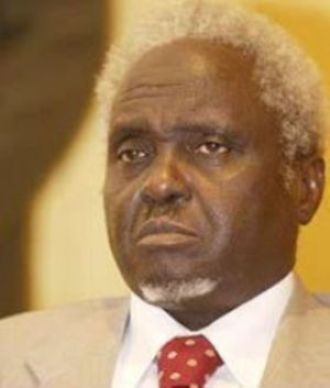Sudan’s prosecutor orders arrest of PCP leader over 1989 coup
November 12, 2019 (KHARTOUM) – Sudan’s prosecutor general has issued arrest warrants against those individuals involved in the Islamist coup d’etat that brought general al-Bashir to power thirty years ago, including the leader of a splinter group from al-Bashir’s party

In a statement extended to Sudan Tribune, the Coordinator of the FFC Legal Committee Mohamed Hassan Arabi said that the Prosecutor Ahmed al-Nur al-Hala has asked the penitentiary authorities to hand over Omer al-Bashir, Ali Osman Mohamed Taha, Nafei Ali Nafei and Awad Ahmed Jazz. ”
All the four NCP leading members have been arrested since 11 April 2019.
He further pointed to the issuance of arrest warrants against all the military who played a leading role in the coup.
“For the civilians, arrest warrants have been issued for Ali al-Haj and Ibrahim al-Sanusi, but they have not been arrested so far,” he further said.
Al-Sanusi is also a leading PCP member.
Furthermore, “The criminal prosecution issued a travel ban for all the defendants.”
Also, he confirmed, on Monday, the arrest of Youssef Abdel Fattah, an Islamist military who took part in the coup.
The military council, which took power following four-month protests, arrested the prominent leaders of the former regime but didn’t try them.
Only al-Bashir has been tried on charges of illegal possession of foreign funds and corruption.
PCP Political Secretary Idriss Suleiman denied the arrest of the PCP secretary-general Ali al-Haj saying “(Arabi’s) statements about the arrest and travel ban, are pure political statements rather than assertions of fact.”
He told Sudan Tribune that “There is a clear confusion between politics, politicians and the judicial organs, and this is a calamity that the country is suffering from nowadays.”
“It is not allowed to speak on behalf of the judicial organs. This chaos will lead the country to the abyss.”
“Any party, whatever its weight, should not interfere in the question of justice and law,” further stressed, Ali al-Haj’ deputy.
The FFC coalitions are under huge pressure from their supporters who blame them for not trying the Islamists for the 1989 coup, human rights violations, corruption and other crimes committed during the past 30 years.
Officials in the transitional government say they have been appointed in September and the judiciary organs in October, adding they are doing the maximum to speed up the instruction of the cases against the old guards.
On 13 May, nearly a month after the ouster of al-Bashir, Sudanese lawyers lodged a complaint against al-Bashir and his aides accusing them of “undermining the constitutional order” and masterminding the military coup of 30 June 1989.
On 22 June, the Public Prosecution heard the last elected Prime Minister Sadiq al-Mahdi in the case against al-Bashir.
(ST)
